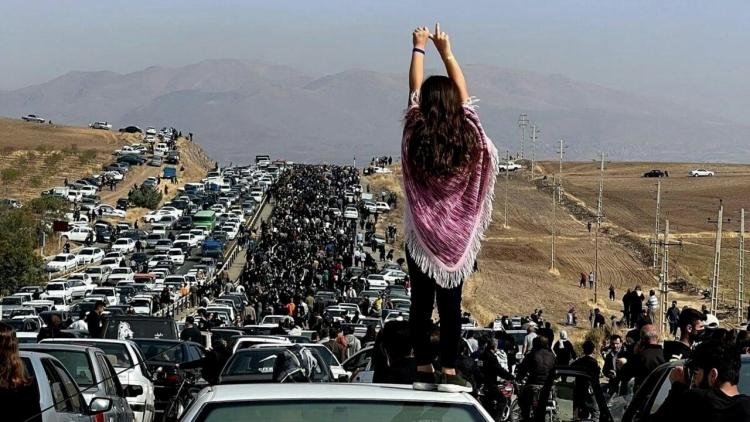Call for papers: Legacy of the British Mandate in Palestine


Legacy of the British Mandate in Palestine
31 March 2023
SOAS, University of London
Submission deadline: 20 January 2023
Contact: britishlegacyinpalestine@gmail.com
Convenors: Julio Moreno Cirujano and Bethany Elce
This workshop hopes to bring together emerging researchers from a range of disciplinary backgrounds to examine the question of British “legacy” in Palestine/Israel to better understand the relationship between the Mandate and today. To do this, we will encapsulate “the British Mandate in Palestine” as a reified concept, a discursive and/or material symbol, and focus on its creation, transit and reception today. On the one hand, we want to explore the mindset of colonial officials, the imagination of their presence in the region, and their conscious or unconscious construction of a British legacy in Palestine. On the other, we look at the reception of this legacy by all engaged parties. How is this legacy understood by Palestinians living under an ongoing settler-colonial regime? How has it been regarded by Israelis over the years since 1948? And how does the British state and its citizens engage or fail to engage with its legacy today?
It is safe to argue that the legal, national, and ideological frameworks in Israel/Palestine have been directly inherited from the Mandate and continue to differently regulate the lives and hopes of the residents in both Israel and the occupied Palestinian territories (Banko 2019). And while some research has thrown light on the processes of handing over institutions built during this period, there has been virtually no reflection on the meaning of this transfer. Some Palestinian narratives understand the Mandate as part of what enabled the on-going settler-colonial regime (Khalidi 2020) and the Balfour Declaration as a “prelude” to the ‘Nakba’ of 1948 (Hawari 2018). Most Israeli narratives consider the Mandate as a period for a state-in-the-making (Saphira 2012) and stress the semi-clandestine and illegal nature of some Zionist institutions (Ofer 1990).
Far from being internalised, the Mandate only figures in these narratives as foreign rule, a colonial period which does not fully participate in the constitution of the self, except as a placeholder governing body against which the nation is developed. Furthermore, British narratives of its own imperial past frame colonialism as an overseas phenomenon which has little bearing on popular understandings of its own national history. The selected forgetfulness about the transit from the British Mandate into the Palestine/Israel has led its colonial legacy to a historiographical cul-de-sac, a seemingly abandoned baton unclaimed by the stakeholders. Thus, while victims and beneficiaries acknowledge a degree of connection to the Mandate, the question of whether its legacy should be claimed, and if so by whom, is left open for discussion.
We invite contributions in two different, yet interconnected areas
1. Proposals which interrogate the conscious production of legacy. While British plans for complete withdrawal came as a surprise during 1947, high ranking officials both in London and Jerusalem were somewhat aware that the period of direct rule in Palestine was coming to an end. What did they want to leave behind? Did they succeed in their intentions? What was actually left behind? Examples of potential subjects for inquiry:
- the construction of monuments and built environment as carriers of meaning,
- the production and destruction of museums, archives, or registries as technologies of colonial governmentality,
- artefacts that engage with the production of narratives about time,
- processes of handing over and taking over of locations prior or during 1948.
2. Papers which enquire about the reception of this legacy on Palestinian, Israeli and British histories, both popular and academic. Examples of potential subjects for inquiry:
- How do they define the concept of “British Mandate in Palestine”? What does it contain and what is left out?
- What role does nostalgia, pride or wilful forgetfulness play in reflections on the period? Does selective memory affect understanding of and engagement with the Mandate?
- How do the names of particular British colonial figures, such as Balfour or Allenby, feature in memories of the past and reflections on the present?
- Process of preservation of destruction of British material heritage –such as documents issued by the “Government of Palestine” or monuments erected during the Mandate.
Please, submit your abstract (around 250 words) and a brief biographical note (up to 100 words) before 20 January 2022 to: Britishlegacyinpalestine@gmail.com. We intend to notify the selected authors by mid-February.
The workshop will be held in-person the 31 March 2023 at SOAS, University of London. Online participation might be possible. Limited travel funding will be available.
We look forward to reading your proposals and welcoming you at SOAS in March 2023.
Photo credit: Michael Panse (Flickr)


